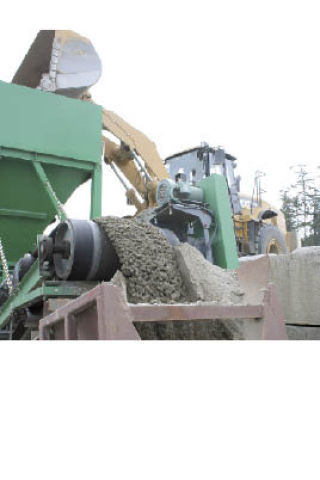The media finally has an issue it is incapable of sensationalizing: skyrocketing oil prices.
And the effect of increasing oil prices is touching almost everyone, including paving companies and jurisdictions like Island County trying to carry out resurfacing projects.
As summer begins, critical paving operations necessary to maintain county roads also ramp up. This year the county will continue with its program, covering nearly 30 miles, or 5 percent, of the county’s nearly 600 miles of public roads.
The extensive program also includes a small group of roads that Coupeville and Langley are adding. Working with the municipalities effectively lowers costs. However, the price of oil is taking its toll on the county’s ability to continue its proactive maintenance program.
“We have seen the cost of asphalt paving more than double over the past eight years,” said Bill Oakes, County Public Works director and engineer. “And even more disturbing is that most of the cost increase has only been over the past four years. Predictions of what the cost will be in the future vary wildly, but if the trend continues, we cannot afford to continue to pave the miles of roads we need to do every year.”
Some people relish the possibility of a summer devoid of noisy paving operations and traffic congestion. The reality is that paved roads cost taxpayers the least when they are resurfaced just as pavement wear begins to show. Delayed resurfacing results in an exponential jump in expenses to repair and rebuild roads. Oakes said neglecting the “county’s most valuable asset” causes the the entire road system to fall apart.
“A drive through nearby counties or cities illustrates how pavements progressively deteriorate to the point where potholes overlap and patches pockmark the road surface,” Oakes said. “Wear and tear on vehicle suspension systems, flying rocks and puddles eating away at more pavement only further add to the taxpayers’ burden and frustration.”
Rising costs also have those in the paving industry pulling out hair. Krieg Construction, the company recently awarded the $1.15 million contract for the Whidbey Island asphalt overlays, has been feeling the oil crisis. Paving oil made an unbelievable jump from $190 a ton in 2004 to $550 per ton today.
“Oil suppliers used to guarantee the price of oil for a period of weeks or months. No one will guarantee the price even daily,” the company vice president said.
Without riddling the messenger with bullets, Krieg recently relayed his sentiments to Tesoro, the company that sells the oil, through a salesperson.
“I said, ‘You can tell your bosses above you they have killed the private sector of paving,’” he said. “This is beyond ridiculous. And they’re not done.”
The Oak Harbor construction company’s weather-permitting work will, for the most part, begin around the end of July at the north end of the island and proceed south during the subsequent 20 days. The public will be notified of specific schedule details as the county gets closer to the commencement of work.
In anticipation of the asphalt paving, crews from public works are already readying shoulders for the resurfacing operations.
“Unfortunately, all this work has to occur during dry and warm conditions, which puts work crews out on the road at the same time many people are vacationing or working,” Oakes said. “We ask that drivers use caution and patience as you travel through construction zones. And when pumping gas into your vehicles at what until just recently was considered preposterous, know that we understand your concern and are doing our best to make the most out of the ‘black gold’ that keeps the driving surface safe and comfortable.”



